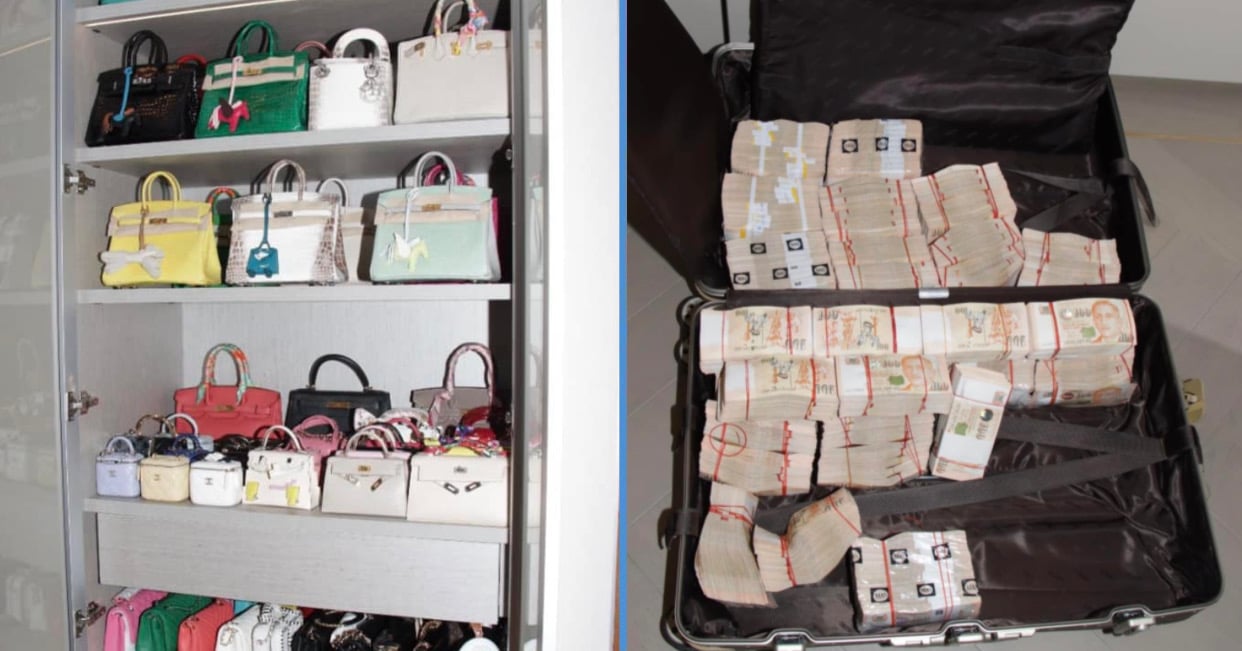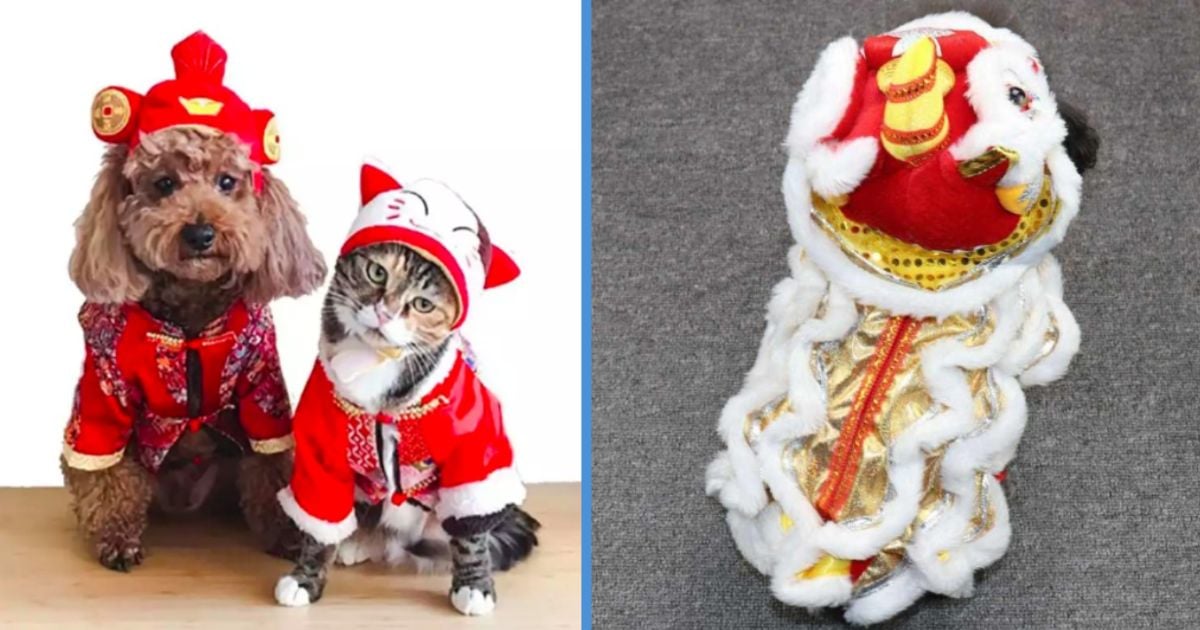You’ve probably heard of the mind-blowing $1 billion money laundering saga involving ten foreigners.
Since then, more information has been thrown into the mix. First, many have speculated that these foreigners are from the “Fujian Gang”. Next, we heard that another foreigner, possibly related to this alleged “Fujian Gang”, once offered to invest $10 million to build a new temple.
Yet, the plot continues to thicken.
Several foreigners involved in the $1 billion money laundering saga have allegedly donated to various charities; this complicates things quite a bit. Here’s why.
Summary of $1 Billion Money Laundering Case Involving 10 Foreigners
If you’ve yet to hear of the $1 billion money laundering saga, fret not. Goody Feed’s got your back.
On Tuesday (15 August), ten foreigners were arrested for their suspected involvement in money laundering, forgery and resisting arrest.
These accused persons have been charged in Court, with their cases adjourned to this week, so stay tuned.
Another twelve individuals are assisting the authorities with investigations, while another eight individuals are currently wanted by the police.
If you’d like to find out more so you don’t sound like such a suaku when talking to your kakis, Goody Feed’s Blue Cats simplify the entire saga for you here:
Several Accused Persons in Money Laundering Saga Made Numerous Donations to Local Charities in the Past
This is the newest chapter of the book: netizens have discovered that several of these accused persons have been actively donating to charities over the past couple of years.
First, you launder money. Next, you become a philanthropist. As they always say, inside you, there are two wolves.
According to Lianhe Zaobao, four accused persons, Su Haijin, Su Baolin, Lin Baoying, and Zhang Ruijin, were found to have made donations to Singapore Thong Chai Medical Institution in 2021.
Su Haijin’s family, Su Baolin’s family, and Lin Baoying together with Zhang Ruijin (they’re a couple), each donated $100,000 to the charitable clinic.
That’s $300,000 in total. The question is, where did the $300,000 come from?
If the $300,000 was from laundered money, things get a little tricky. But we’ll talk about that later.
Singapore Thong Chai Medical Institution isn’t the only charity now knee-deep in the trenches by implication with the recent money laundering saga.
The Sichuan Association (Singapore) is also implicated.
According to Lianhe Zaobao, the association had allegedly appointed one of the accused individuals in the money laundering case as the association’s permanent honorary president in 2021.
This individual is none other than Su Haijin, otherwise known as the man who jumped from his GCB balcony.
Or, if you’d like, the director of No Signboard Holdings.
Usually, when someone jumps off their GCB balcony, we’ll call them “stupid” lah. But this one cannot play play, okay?
On another occasion, the Sichuan Association (Singapore) also allegedly presented a Public Service Medal to Lin Baoying in September 2022.
Apparently, Lin Baoying was also an honorary president of the association.
President of Sichuan Association Denies Allegations
So, what do the implicated charities have to say about this?
Well, Singapore Thong Chai Medical Institution has chosen the path of silence (were you silent, or were you silenced?). However, the Sichuan Association (Singapore) president has since responded.
Of course, he did what anyone else would do: admit nothing, deny everything.
He even went one step further to emphasise that the accused persons had nothing to do with the Sichuan Association.
So, what’s your take? Do you think the Sichuan Association is telling the truth?
You may be thinking: So what if the accused persons once donated to charities? Isn’t it good that they gave back to society?
Wah. Suaku lah, you.
Think about it: if your brother stole $100 from your mother and gave it to you, and you subsequently used the $100 to buy some ngoh hiang, of course, the ngoh hiang auntie will also be implicated, right?
Let alone a charity.
In fact, when illicit funds, such as laundered money, are put into charities, many more red flags are raised.
Here’s how it works. There are a few possible situations that may arise when illicit funds are transferred to a charity.
First, if the donated funds are still unused and chilling in the charity’s bank account, this is pretty straightforward—police can usually trace these funds and recover them.
The second situation: if the charity has already used the donated funds, this is a little more complicated and can be further split into two scenarios.
Put it this way: say your brother stole $10, passed it to you and you eventually spent it on ngoh hiang. Regardless of whether you had the $10, you probably would have bought the ngoh hiang because you have some serious money management issues.
If the police wanted to recover that $10 for some reason, they’ll likely be able to recover it because you would have spent money on ngoh hiang either way.
But in an alternative world where you’re not addicted to ngoh hiang and are a little more financially savvy, the ngoh hiang you eventually bought wasn’t something you would have purchased in the first place.
If the police now wanted to recover that $10, they’ll likely be unable to recover it.
The charity scenario is a little more complicated than this, but that’s the gist—recovery of illicit funds depends on whether the expenses made were previously feasible.
If it was previously feasible, recovery should be easy. If not, recovery is difficult.
To throw another wrench into the whole problem, authorities will also consider whether charities were aware that the donations they received were “sus”.
If the given charity was aware of it but chose to close one eye (or better yet, close both eyes), suffice it to say that the charity should probably start listening to Da Bei Zhou on repeat lah.
Even Guan Yin Ma can’t save you now…
You see, even charities are responsible for conducting know-your-client (KYC) procedures to avoid accepting monies from questionable sources. It’s why that one local temple refused to take the $10 million sum from the foreigner with a Fujian accent.
For now, we’ll have to see what investigations eventually reveal.



